voters
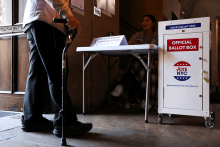
During the 2024 August primary election, a Detroit man called the Election Protection Hotline to report an accessibility issue at a polling location. The man, who had a mobility disability, went to vote at a church in the city where he was met with a flight of stairs but no ramp. He was forced to get out of his wheelchair and climb the stairs on his hands and knees before he could cast his vote.
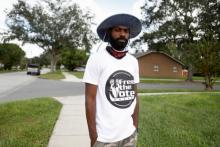
“We understand that this policy is being used to distract us from the fact that you are policing us at a greater rate than ever before,” said Brittany White, who spent five years at an Alabama correctional facility after being convicted of drug trafficking and now works to engage newly enfranchised voters. “We are not fooled by this First Step Act and the other minor policies that have been implemented.”
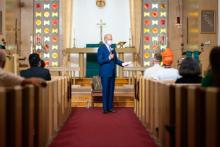
Before winning the election, Biden touted endorsements from more than 1,600 faith leaders, the largest number for a Democratic candidate in modern history. The noteable outreach could be attributed partially to President Donald Trump’s relationship with religious conservatives. The increasing visibility of religious leaders in progressive politics also provided an opportunity. However, when looking for a catalyst to the campaign’s faith outreach, experts in faith and politics point to Joe Biden himself.
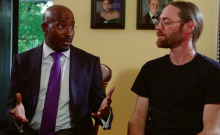
We’re part of a community of people who are using cameras and pens and microphones to explore our differences — and I think that’s what keeps our differences from being explored by knives and bombs and all these other forms of destruction. What you’re doing with a publication, what we're doing with film, it’s all part of the same effort.
That’s where you see democracy at work, and that’s really what we’re rededicating ourselves to.
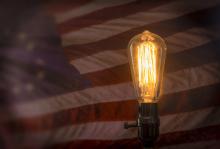
Now, more than ever, we need political candidates and elected officials on both sides of the aisle who value the rich and diverse tapestry of this nation and seek to build bridges instead of walls. And while we deserve candidates who exhibit civility and respect in their campaigns and governance, this has never been a guaranteed right. We must be committed and courageous enough to speak out for mutual respect and decency. We must challenge all leaders and hold them accountable to the values presented throughout the gospel.
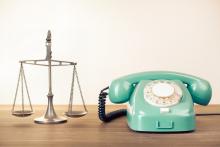
To be black in America is to listen to death daily. To hear mothers wailing at unnecessary funerals, to see fathers mourning lost sons, to offer graveside prayers that puncture the heart of God — this is the sorrow song of a people, and a nation, haunted by racism.
Over our heads however, I hear the sweet, dark sounds of freedom in the air, calling for the dry bones of democracy to arise from the segregated sinews of our society. The multiracial chorus of protestors chanting, "I can't breathe," the die-ins, the walk-outs, and the highway-halting actions of youth from New York to Chicago to Tallahassee to Los Angeles represent a thirst and hunger for righteousness that includes and yet transcends voting.
To join within this symphony of justice, I am calling faith communities to participate in a national #DialInForJustice during the month of December. The goal is to call the Unites States Department of Justice and local police departments, communicating our desire to see systemic reforms to policing in America. This initiative seeks to lift up faith-filled voices alongside the already existing trumpet blasts of groups like the Organization of Black Struggle, Dream Defenders, PICO, Sojourners, and so on.

As President Barack Obama comes off of a substantial second victory, many pundits have pointed to the youth vote and a significant factor in his most recent success. Reports show that 60 percent of young voters cast ballots for Obama, while only 36 percent voted for Gov. Mitt Romney's more conservative policies. While many older voters believe this suggests young voters are unaware or uninterested in the nation's economic concerns, a major platform in the 2012 election, a number of polls suggest the economy is actually a top priority for most young voters. As it happens, though, young people seem to have very different ideas on how best to handle economic instability than their older counterparts.
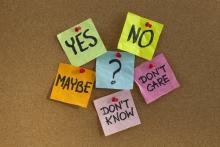
Pollsters and politicians hunting for the rare and elusive undecided voter might want to train their sights on the pulpit.
A whopping 22 percent of Protestant pastors haven’t settled on a presidential candidate, according to a survey released earlier this month by LifeWay Research. By comparison, just 4 percent of all likely voters remain undecided, according to Gallup.
The undecided pastor trend doesn’t appear to be a one-time fluke. A similar survey conducted in October 2008 also found that 22 percent of pastors hadn’t chosen between Obama and then-GOP nominee Sen. John McCain.
The survey of 1,000 Protestant pastors was conducted Sept. 26-Oct. 3 by LifeWay Research, a division of LifeWay Christian Resources, which was founded by the Southern Baptist Convention.
Pursued by politicians, mocked by "Saturday Night Live" and barely tolerated by partisans, undecided voters get a bum rap. But there are good reasons for pastors to remain ambivalent until Election Day, experts said.
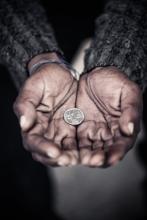
More American Catholics believe their religious leaders should be focused on issues related to poverty and social justice during this election season, rather than spending time and energy on other issues such as abortion, according to a new survey released this week by the Public Religion Research Institute.
The results of the 2012 American Values Survey demonstrate that American Catcholics -- and the "Catholic vote" -- is far from the monolith some politicians might like to believe they are.
"The survey confirms that there is no such thing as the 'Catholic vote,'" Robert P. Jones, CEO of PPRI and co-author of the report, told Reuters. "There are a number of critical divisions among Catholics, including an important divide between 'social justice' and "right to life' Catholics."
For instance, on the question of the public engagement of the church, the 2012 American Values Survey found important divisions between Catholics who prefer a “social justice” emphasis that focuses on helping the poor and Catholics who prefer a “right to life” emphasis that focuses on issues such as abortion.
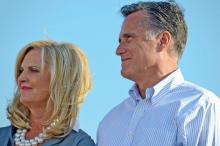
Mitt Romney angered evangelicals during his first White House run in 2008 by blurring the theological lines between their faith and his Mormonism. Lurching in the other direction, he irked them again by scarcely mentioning religion at all during this year’s GOP primaries.
But Romney has finally found some middle ground, evangelical leaders say, by sidelining theology and stressing the “Judeo-Christian values” that he shares with social conservatives.
“He’s made it very clear not to gloss over the theological differences that his faith has with evangelicals,” said Tony Perkins, president of the conservative Family Research Council in Washington. “As long as he talks about the shared values of our religious traditions, I think he’s good.”
Romney did exactly that during a Sept. 9 Meet the Press interview, saying that religion inspired him to run for president — without mentioning the word “Mormon.”
“The Judeo-Christian ethics that I was brought up with -- the sense of obligation to one’s fellow man, an absolute conviction that we are all sons and daughters of the same God and therefore in a human family — is one of the reasons I am doing what I’m doing,” he said.
Conservative Christian leaders are taking the same approach, urging evangelicals to focus on Romney’s policies and principles, not the particulars of his faith.
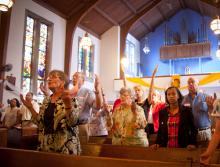
President Obama’s support among Catholic voters has surged since June, according to a new poll, despite a summer that included the Catholic bishops’ religious freedom campaign and the naming of Rep. Paul Ryan, a Catholic, as the GOP's vice-presidential candidate.
On June 17, Obama held a slight edge over Mitt Romney among Catholics (49-47 percent), according to the Pew Research Center. Since then, Obama has surged ahead, and now leads 54-39 percent, according to a Pew poll conducted on Sept. 16.
Among all registered voters, Obama leads Romney 51-42 percent, according to Pew.
Obama and Romney are essentially tied among white Catholics, which some pollsters call the ultimate swing group.
On Sept. 24 Romney unveiled his Catholics for Romney Coalition, which includes numerous politicians, beer magnate Pete Coors and Princeton University intellectual Robert P. George. The Obama campaign also has a Catholic coalition.
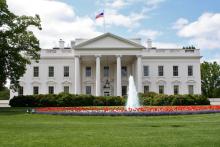
Nearly one in five Americans say they would not vote for a Mormon president, a percentage that has hardly budged since 1967, according to a new Gallup poll.
It is unclear how the anti-Mormon bias will affect Mitt Romney, the presumed GOP presidential nominee, Gallup said, since just 57 percent of Americans know that he is a member of the Church of Jesus Christ of Latter-day Saints.
“This suggests the possibility that as Romney's faith becomes better known this summer and fall, it could become more of a negative factor,” Gallup writes, “given that those who resist the idea of a Mormon president will in theory become more likely to realize that Romney is a Mormon as the campaign unfolds.”
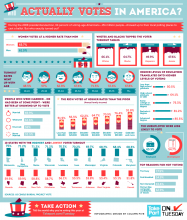
Take Part on Tuesday has created to great infographic that shows who actually votes in America.
Some of the highlights:
- Married people are more likely to vote than widowers, divorcees or those who have never been married.
- The higher the level of education you have received, the more likely you are to vote.
- More than 9-in-10 people with an annual family income of over $100,000 vote, compared with just 5-in-10 whose income falls below $20,000.
- Our busy lives are the number one reason why we don’t vote.
- Congratulations to Minnesotans – your state tops state-by-state voter turnout with 75%
- Must do better: Hawaii - only half of Hawaiians voted in the 2008 election.
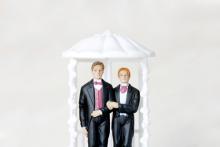
Opposition to gay marriage is significantly lower in 2012 compared to the previous two presidential campaigns, a survey by the Pew Research Center for the People & the Press shows.
For the first time, the level of strong support for gay marriage is equal to the level of strong opposition, researchers report. In the April 4-15 survey, 22 percent of Americans say they strongly favor permitting legal marriage for gays and lesbians; an identical percentage said they strongly oppose it.
In 2008, strong opposition was twice as high as support -- 30 percent vs. 14 percent.
GRAND RAPIDS, Mich. — Mitt Romney’s position on the Detroit auto bailout and health care plan have been blasted, but a pollster suggests one issue not often discussed on the campaign trail this year could end up costing him Tuesday's Michigan primary victory: his Mormon faith.
EPIC-MRA pollster Bernie Porn said the former Massachusetts governor’s faith hasn’t been as big of a topic as it was when he sought the nomination in 2008.
But Porn said on WGVU’s “West Michigan Week” that his polls show that 7 percent of the Republicans tallied said they wouldn’t vote for Romney because he is a Mormon – and the actual number might be higher.
With a race that could be decided by less than 5 percent, that could be a problem for Romney, he said.
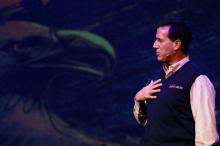
With the Iowa caucus, the "First in the Nation" New Hampshire primary, and South Carolina's primary now behind us, the field of contenders for the Republican nomination continues to shrink. I've watched with great interest as the spectacle rolls on and a parade of non-Romney's (Non-Roms, going forward) rhythmically rise and fall. What is perhaps most interesting about the current frontrunners is the lack of an obvious evangelical candidate. For all the talk that we hear about the importance of the evangelical vote, one would suspect at least one of the potential nominees to be, you know, an evangelical.
But Michele Bachmann is out of the race after a promising start in the Iowa straw poll. Perry, whose entrance into the race as a more "electable" evangelical candidate may have contributed to Bachmann's quick downfall, all but eliminated himself in a number of now infamous debate flops. That leaves one not particularly religious Baptist, two Roman Catholics, and a Mormon. Rick Santorum, a Catholic, is perhaps the most socially conservative and thus the most evangelical-looking of the Non-Roms, but many evangelicals have a deep mistrust of Catholics, so it is doubtful that, as they did in Iowa, evangelicals will support him despite his Catholicism.
So what happened here? Back in 2004, when talking about the evangelical vote was all the rage, one could presume that evangelicals were a unified political front—that denominations or non-denominations within evangelicalism didn't matter, theological differences were moot, and ending abortion was enough to tie them all together. The problem with this presumption is that it was never true. There was never one kind of evangelical. If there was, self-identified evangelicals wouldn't have to add a definition or disclaimer every time they identify as such.

TeaVangelicals?
TEA-Vangelicas?
T-Evangelicals?
Whatever you call them, however you spell it, there’s a group of Evangelicals who have Tea Party hearts.
Some thought they’d swing for Bachman, but it looks like they’ve turned solidly behind Rick Santorum.
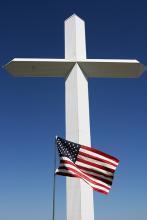
While some folks holler and scream about Rick Perry’s ad, the blunt truth is that this has always been the consistent strategy of modern day politics.
Sadly, religion has become fair game for politicizing – at its best or worst depending on your perspective. What I’m saying is that I while I really dislike Rick Perry’s ad and strongly disagree with his assertion that President Obama has waged war against religion. But that’s not the point. My point is that we’ve allowed the politicizing of religion (and other things) to be FAIR GAME.
Listen folks: I’m not criticizing Rick Perry (or other candidates) because, truth be told, we’d probably do the same politick-ing. I’m actually critiquing you and me. I’m critiquing us.